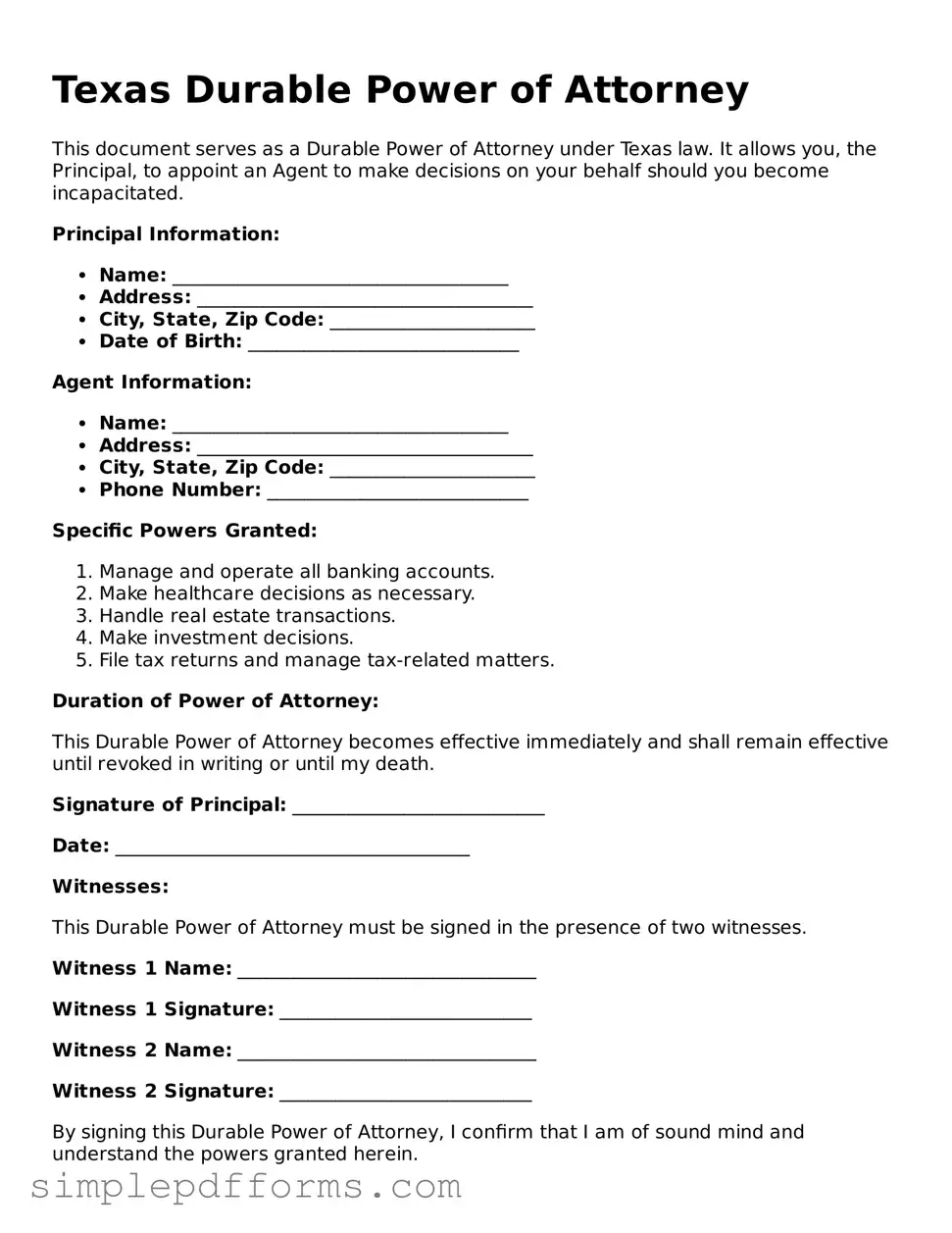Attorney-Verified Durable Power of Attorney Document for Texas State
A Texas Durable Power of Attorney is a legal document that allows an individual to designate another person to make decisions on their behalf, even if they become incapacitated. This form provides important protections and ensures that the appointed agent can manage financial and legal matters effectively. Understanding its implications is essential for anyone considering this powerful tool for future planning.
Open Durable Power of Attorney Editor Now

Attorney-Verified Durable Power of Attorney Document for Texas State
Open Durable Power of Attorney Editor Now

Open Durable Power of Attorney Editor Now
or
Get Durable Power of Attorney PDF Form
Your form is waiting for completion
Complete Durable Power of Attorney online in minutes with ease.